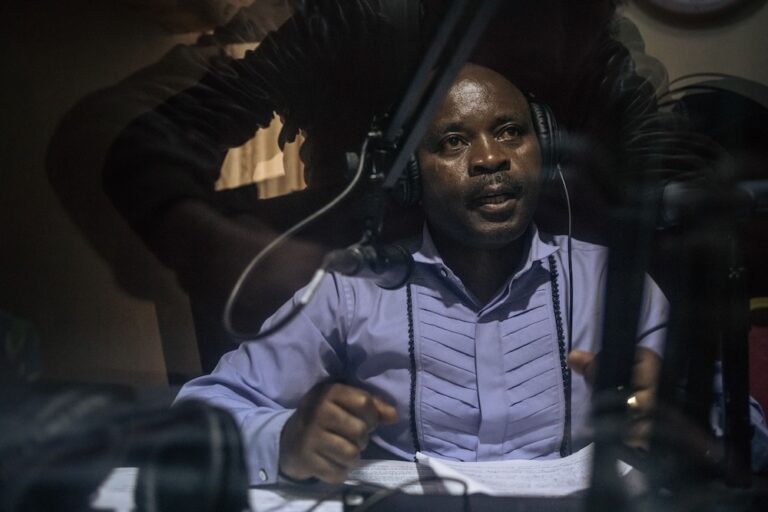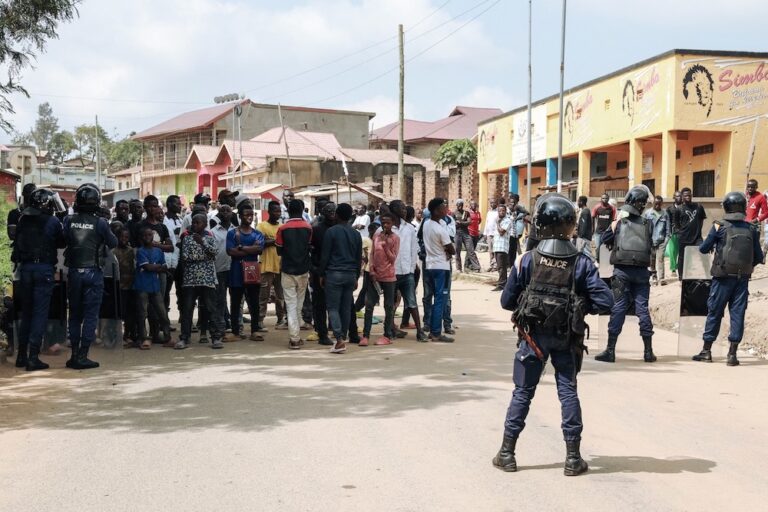(JED/IFEX) – The following is an abridged version of a 20 December 2004 JED press release: JED denounces government attempts to set media agenda as war rages in the eastern Democratic Republic of the Congo Journaliste en danger (JED), an independent and non-partisan organisation dedicated to the promotion of press freedom and operator of the […]
(JED/IFEX) – The following is an abridged version of a 20 December 2004 JED press release:
JED denounces government attempts to set media agenda as war rages in the eastern Democratic Republic of the Congo
Journaliste en danger (JED), an independent and non-partisan organisation dedicated to the promotion of press freedom and operator of the alerts network for the Central African Media Organisation (Organisation des Médias d’Afrique Centrale, OMAC), has learned of a recent statement made by Modeste Mutinga, president of the Haute Autorité des Médias (HAM), the Democratic Republic of the Congo’s (DRC) media regulatory body, during a 17 December 2004 press conference on the war currently raging in the eastern part of the country.
While recognising the severity of the situation and the fact that war is always a highly mediatised event, the HAM president declared in his written statement that, “If the soldier has his rifle and his ammunition to take with him to the front, the journalist has his pen and his microphone to defend the unity, integrity and sovereignty of our nation.”
In the same statement, while deploring “the communication deficit that characterises all transitional institutions,” Mutinga urged journalists to rely on “authorised sources” for their coverage of the crisis in the east, including the Ministries of Defence, the Interior, Foreign Affairs and the Press and Information.
Mutinga reminded the media of their obligations under Article 78 of the 22 June 1996 Law No. 96/002 on press freedom. Under this article, anyone considered to have incited government troops to defect to the services of a foreign power, to have knowingly participated in efforts to demoralise the army or the civilian population, with the goal of eroding national defence, or to have provided, directly or indirectly, information or documentation classified as secret in the interest of national security to a foreign power, shall be punished for “treason”.
Recalling that it is the primary duty of a free press, particularly in times of war or crisis, to seek and impart the information necessary to democratic public debate, and not to “defend the unity, integrity and sovereignty of the nation,” JED urges the institutions of the transitional authority:
1. Not to interfere in journalists’ reporting of the crisis in eastern DRC;
2. To hold regular press conferences during which the media may ask questions;
3. To guarantee journalists safety in the militarised areas of eastern DRC;
4. To prescribe the principle of maximum disclosure as a duty for all institutions in the name of the public’s right to information.
JED further condemns all attempts to muzzle the media or to impose an editorial line on independent media outlets, as well as attempts to scapegoat the press for the failures of the transitional authority’s institutions to meet their obligations.
Issued in Kinshasa, 20 December 2004


